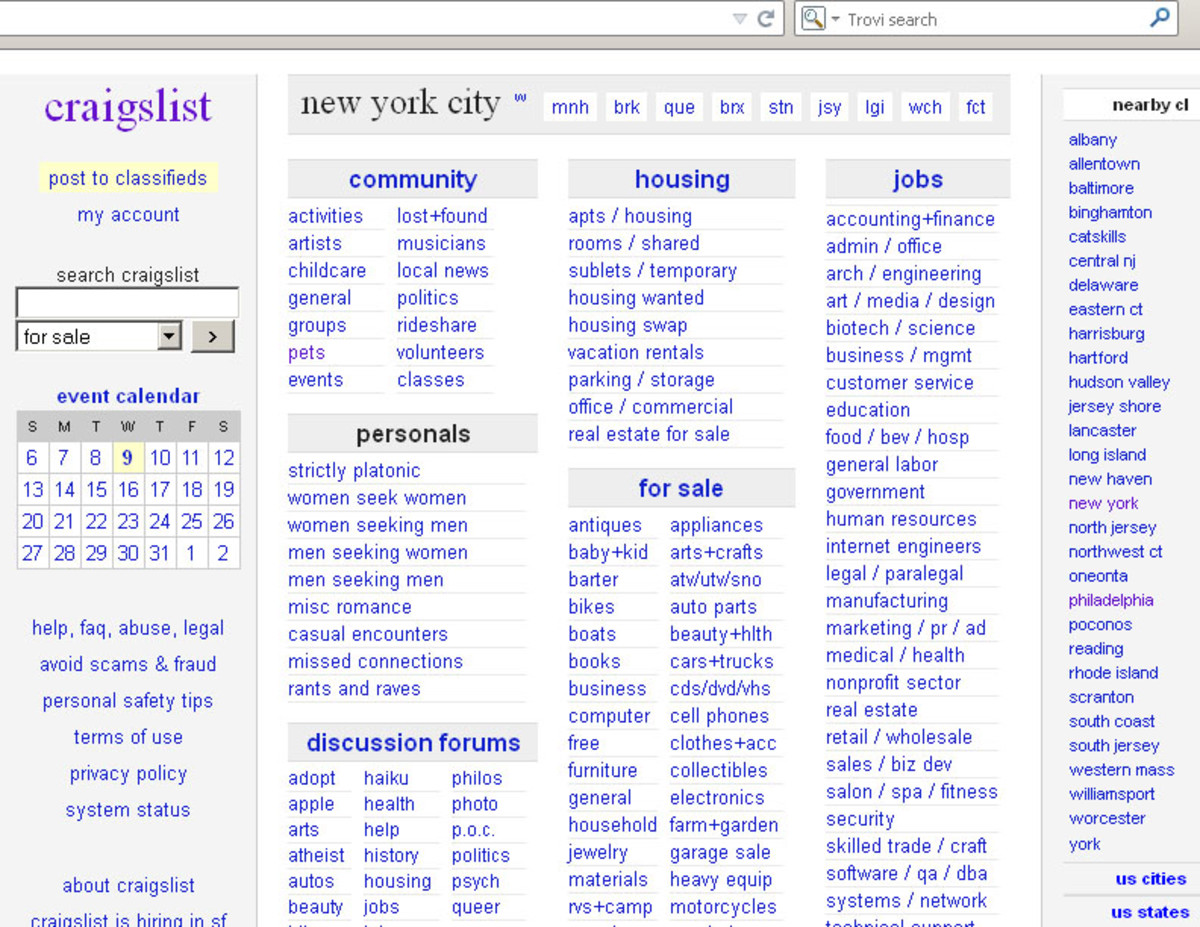- HubPages»
- Business and Employment»
- Marketing & Sales»
- Sales & Selling
Sales Process: Understanding Leading and Lagging Information

The contract for a sale has been signed. Yay! But the check hasn't cashed. Should that still be considered a sale or not? Sales that are closed, but are not yet in progress or fulfilled, cannot technically be considered as income. Yet that piece of business has future value. How should transaction be included in sales process reporting?
Tracking for sales that have been received, but haven't yet been paid, is an important metric in sales forecasting. This would be considered "leading" information, in other words, it's ahead of the actual realization of revenue. After that sale is paid, it will appear on the profit and loss statement as income. Because profit and loss statements report income and payments after they are made, these reports are considered "lagging" information.
However, sometimes, determining what is leading and lagging isn't that simple. Here are techniques for assessing income and forecasts within the sales process.
Using Leading Information for Cash Flow Forecasting
Cash flow forecasting is tightly tied to sales forecasting. In fact, cash flow forecasting is impossible without having some idea of what sales are projected to close within a specified time frame.
Projecting cash flow also depends heavily on the company's accounts receivable and cash sales policies. For example, if a company typically has a net 30 (total of invoice is due within 30 days after sale is closed), then they can look at all sales that have closed, but not that have not been paid, and anticipate those amounts to convert to cash within the next 30 days.
Analysis of the company's sales funnel can also provide important leading information for cash flow forecasting. In many companies, especially those that have long sales cycles, there may be multiple cash forecasts. For example, a commercial office builder may know that once a contract is signed for a build, it may take two years to completely convert to cash. However, payments from the client may be made throughout those two years as the build progresses.
Cash Flow Analysis and Lagging Information
Once the cash flow forecast is made based on the leading information, those projections are compared to the actual intake of cash on the profit and loss statement. If there is a major discrepancy between the two it can indicate that the company is having difficulty collecting on its accounts receivables and could put it in serious financial jeopardy.
This can indicate that the following actions may be needed:
- Quicker Payment Due Dates. If customers are taking 60 days to pay on net 30 invoices, a company might want to consider instituting a quicker payment policy or even require a partial or full deposit when the sale is closed.
- Stricter Analysis of Individual Customer Payment Habits. This is the other "lagging" information to watch! If there are some customers that consistently take inappropriately long periods of time to pay invoices, it's time to have a discussion with them about the issue, institute shorter due dates, require upfront deposits or consider walking away from the business if the issue is severe. Looking at the customer's payment habits over an extended period of time will help identify those that might have a temporary delayed payment issue and those that make it a habit.
Don't Turn Your Business Into a Bank
Wow! You can't believe that you scored a big sale with a major corporation. You provide all the required products or services on time and then confidently send off the invoice, looking forward to the coming huge payday.
Then you wait... and wait... and wait. You start emailing your contact at big corporation and a polite "I submitted it for payment." reply comes back. You wait... and wait... again. Then, finally after four months, you get the check. In the meantime, you've paid for the products or services you offered, you ran up your credit cards or took out loans against your savings and, oh, you had four months of overhead to pay. Elation at the big score just turns into relief. Sometimes the payday won't even pay for the extra days and expenses it took.
This is a difficult scenario that many small business owners find themselves in. Yours truly included! I had one client flat out tell me that they would take at least 90 days to pay me. Yet I had to pay for the products they purchased with my credit card or on a net 10 basis. I, as a micro business, was playing bank for a multinational corporation!
What can small business folks do?
- Be Clear About YOUR Expected Payment Policies. Remember, you are the vendor. You wouldn't walk into a retail store and tell the cashier that you'll take your purchase now, but will pay them in three months. Why let your clients do that to you?
- Be Aware of Your Costs to Accommodate. If you truly want the business, then be very honest with yourself about your financial needs—both professional and personal—during the collection period. If you can't afford it, you need to think about walking away OR negotiating some interim deposits or payments with the customer.
- Be Ready to Add Financing Fees. Again, if you really do want the business, then add an appropriate financing fee to quotes. Making it a line item and discussing it might even encourage some customers to reconsider their slow paying habits.
- Be Prepared to Walk Away. If accepting the business will bankrupt the business, it might be time to think about moving on to greener pastures (the cash "greener" kind).
This article is accurate and true to the best of the author’s knowledge. Content is for informational or entertainment purposes only and does not substitute for personal counsel or professional advice in business, financial, legal, or technical matters.
© 2013 Heidi Thorne






